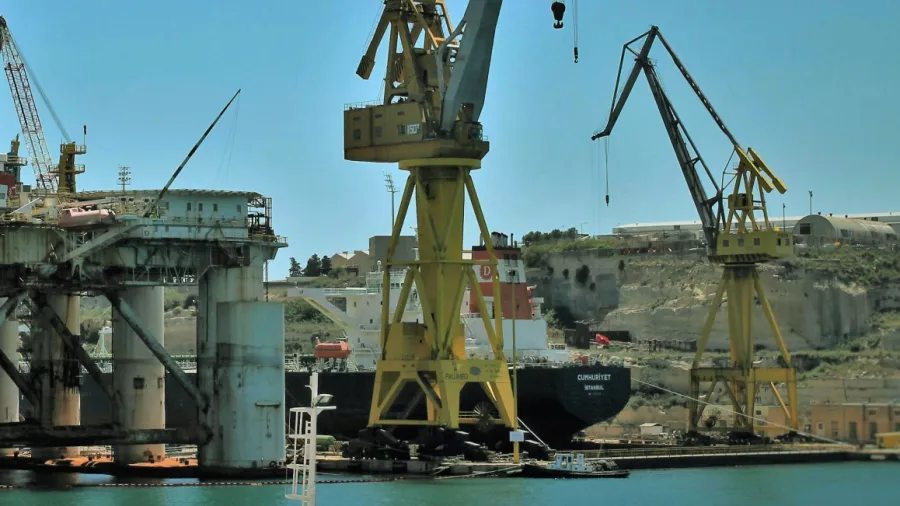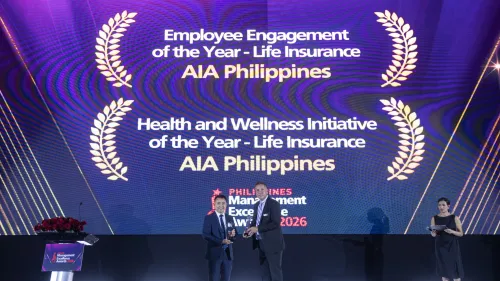
Indonesian shipbuilding market set for major growth by 2028
In 2028, the Indonesian shipbuilding market is forecast to have a volume of 52,300 gross tonnage, an increase of 16.8% from 2023.
DESPITE historical declines, the shipbuilding market in Indonesia is displaying resilience with a remarkable growth of 5% in 2023, according to GlobalData records. Capturing 0.1% of the Asia-Pacific market, Indonesia demonstrates its competitiveness, driven by economic recovery and booming international trade.
The shipbuilding market is a high stakes competition that features major players like Huntington Ingalls Industries, Hanwha Ocean, Samsung Heavy Industries, HD Hyundai, and Mitsubishi Heavy Industries. Lucrative profit margins have naturally heightened each one’s efforts to dominate the market.
Substantial R&D investments have driven innovation, amplifying competitive pressures. Market dynamics, including government subsidies, vessel scrapping rates, and global seaborne trade volumes, significantly influence the level of competition.
UNCTAD’s Review of Maritime Transport reports a 2.4% increase in global maritime trade volume in 2023, further fueling market rivalry.
Moreover, material backlog incurs significant storage expenses, hindering adaptability to market fluctuations. The Department of Scientific and Industrial Research notes shipyards’ substantial operating capital requirements during the building phase, typically ranging from 25%-35% of the ship’s total cost, posing challenges for market entry.
Consequently, players must compete fiercely for dominance amidst these hurdles.
Key players
The Indonesian shipbuilding market has the players mainly based in the country. The leading shipbuilders are engaged in the whole process: designing, building, and assembling ships for transportation and trade and providing such services as designing, building, and assembling oil tankers, bulk carriers, container ships, and others.
The market is consolidated, with the leading players in the market comprising PT. Batamec Shipyard, ASL Marine Holdings, PT PAL Indonesia, PT Dok Dan Perkapalan Kodja Bahari, and Marco Polo Marine.
ASL Marine Holdings, headquartered in Singapore City, Singapore, stands as another major contributor to Indonesia’s shipbuilding market. With shipyards in Singapore, Batam (Indonesia), and Guangdong (China), the company offers shipbuilding, conversion, repair, marine engineering, and related services, complemented by vessel chartering and transportation.
Meanwhile, PT PAL Indonesia, situated in Surabaya, Indonesia, specialises in designing and constructing ships for military and commercial purposes, boasting a diverse product portfolio that includes ferries, patrol boats, tugboats, fishing vessels, and more. The company also provides repair, maintenance, and overhaul services for submarines and ships, along with manufacturing various components.
PT Dok Dan Perkapalan Kodja Bahari, a state-owned enterprise based in North Jakarta, Indonesia, emerged from the merger of four companies. With multiple shipyards spread across Jakarta and other regions, the company offers shipbuilding, maintenance, and repair services.
Lastly, Marco Polo Marine, headquartered in Singapore, holds a prominent position in Indonesia’s shipbuilding market. The company's focus spans shipbuilding, repairs, conversions, and chartering operations, supported by a fleet facilitating offshore oil and gas activities, including coal, granite, and sand transportation.
Strategies employed
Navigating the dynamic waters of the maritime industry requires a keen eye for innovation and adaptability.
At present, shipyards like PT. Batamec Shipyard, ASL Marine Holdings, and Marco Polo Marine stand at the forefront, shaping the future of shipbuilding with the strong pursuit of excellence and commitment to advancement.
PT. Batamec Shipyard, for instance, is enhancing its infrastructure by acquiring land for expansion and installing new gantry cranes. These upgrades enable the shipyard to efficiently handle third-party vessel construction orders, ship repair, conversion works, and fabrication projects.
In 2022, the company successfully launched the KRI Balongan (908), demonstrating its commitment to utilising the latest technology and stringent safety procedures for efficient shipbuilding operations.
ASL Marine Holdings focuses on constructing vessels with shorter delivery cycles and lower capital requirements, such as tugs, barges, tankers, and dredgers. With five shipyards spanning Singapore, Indonesia, and China, the company caters to global customers and operates a vessel fleet of 229, providing ship chartering services across various industries.
On the other hand, Marco Polo Marine seeks to diversify and expand its operations, particularly in submarine cable installations and offshore windfarm projects. With a focus on developing shipbuilding capabilities and integrating into ship repair and maintenance services, the company has delivered over 100 tugs & barges and anchor handling tug supply (AHTS) vessels as of December 2023.
Its future plans include focusing on building orders of tugs, barges, and offshore vessels.
Big developments
In November 2023, Abu Dhabi Ports (AD Ports) announced its decision to acquire PT Meratus Line, an Indonesian logistics and coastal container shipping company. This acquisition is expected to enhance AD Ports’ business presence in Indonesia.
In the same month, Syncrolift, the world’s leading manufacturer of shiplifts and transfer systems, signed a $15 million contract with PT Pal Indonesia, for the engineering, manufacturing, and delivery of a new shiplift and ship transfer system.
In January 2023, Marco Polo Marine, a subsidiary of Marco Polo signed an agreement with Namsung Shipping, a container shipping company based in South Korea, and with HA Energy, a Korean company providing construction, engineering, and commissioning services for various offshore platforms. Through the collaboration, the companies will jointly pursue wind vessel projects in South Korea.
Earlier in 2022, Abu Dhabi shipbuilding (ADSB), signed an agreement with PT PAL Indonesia, to leverage the capabilities of both companies to build a range of interceptors, landing craft, and rigid-hull inflatable boats (RHIBs) for Indonesia’s naval and coast guard requirements.
These recent developments only underscore the market’s dynamic nature and potential for sustained advancement. As the industry evolves, the players are keen on seizing every opportunity to propel Indonesia’s shipbuilding sector to new heights.
By all indications, the Indonesian shipbuilding market is on track to achieving a volume of 52,300 gross tonnage by 2028, a forecasted increase of 16.8% in a span of five years.
















 Advertise
Advertise








